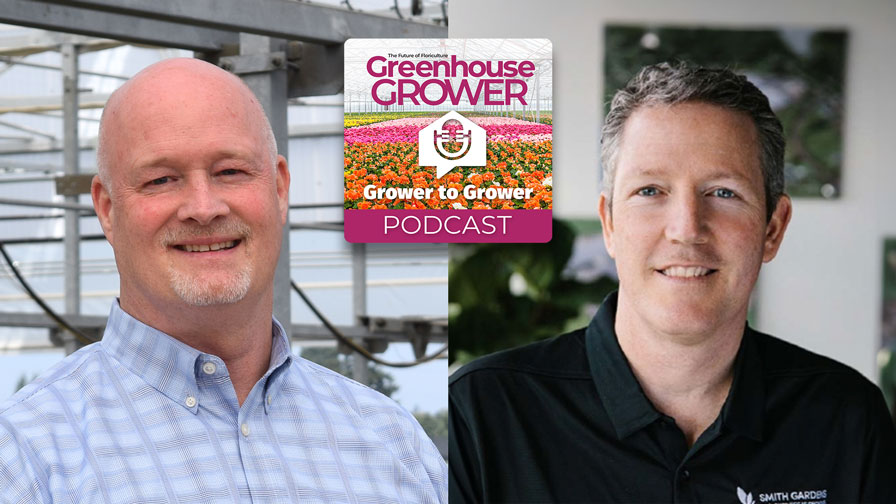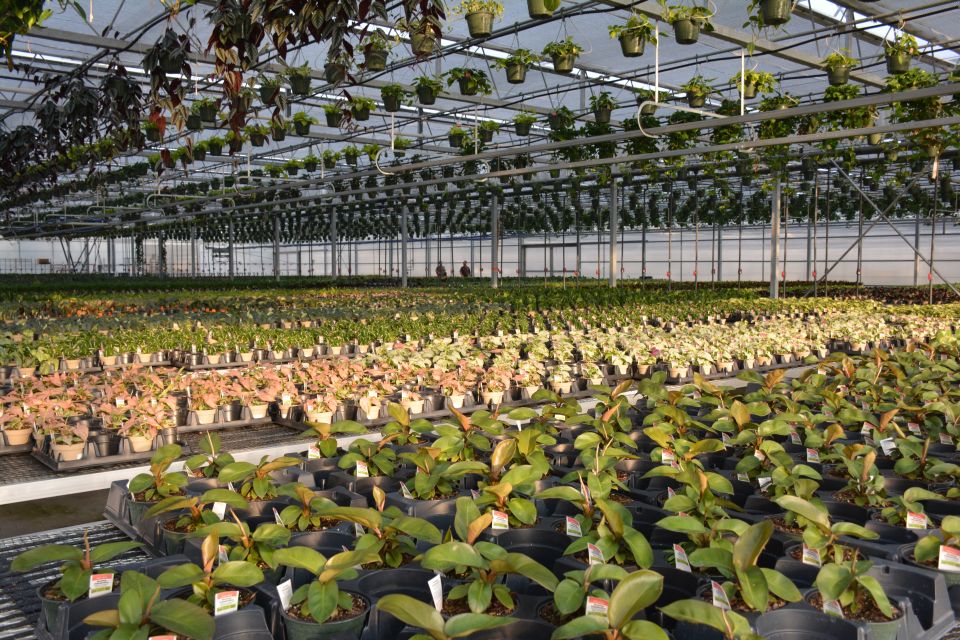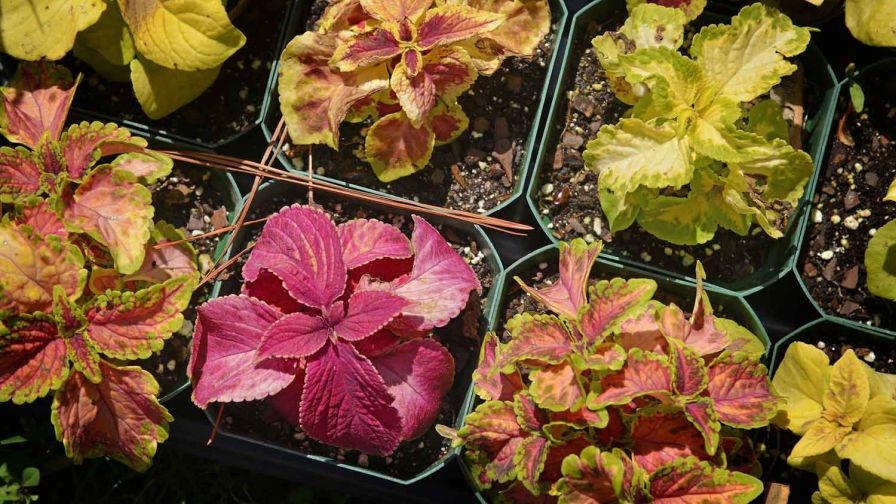Hemp In the COVID-19 Age: Research Breakthroughs, Buyback Program Announced
As you can see from perusing Greenhouse Grower’s homepage (as well as many other media companies), COVID-19 coverage has pretty much engulfed ag media coverage from every angle of the essential business that is farming. And, as much as we and other industry folks prognosticate, the true impact of this devastating crisis will not be fully accounted for months, maybe years.
Still, even a global pandemic cannot halt the overwhelming force that is spring planting. People (and machines) will still plant stuff — seeds, clones, starts, liners, etc. — and crops will be grown despite the coronavirus.
U.S. hemp growers are readying for the crop’s sophomore season as a federally legal agricultural output, gobbling up genetics and all the other inputs they’ll require like crazed hoarders in a suburban supermarket. Ok, maybe that’s a bit strong…
The point is, despite the pains of Q4 2019 in the hemp world, and the snails’ pace slowing down of the global economy in general, business goes on in the hemp and CBD world.
It’s not all bad news in the hemp world though, as I recently learned about a promising research breakthrough on the genetics side. And there’s news of an industry player getting creative with seed program incentives for growers.
Salk Institute Researcher Talks Cannabis Genome Sequencing Breakthrough
Dr. Todd Michael, a Salk Institute Researcher formerly with genome research outfit J. Craig Venter Institute (JCVI), has always been somewhat fascinated by the cannabis plant.
The former head of The Genome Center and a research fellow with row crop ag genetics giant Monsanto, Michael decided to pursue that passion after some light prodding from a colleague to help uncover a “really high-quality cannabis genome for breeding purposes.”
“One of the things we wanted to figure out is, why do some plants produce high levels of CBD, and why some plants make such high levels of THC?” the researcher explains.
This has traditionally been a tough ask of even the most elite plant geneticists, Michael says, because the cannabis genome is so difficult to sequence due to how similar different parts of the genome are difficult to distinguish between due to ancient viral remnant “jumping genes.”
What enabled Michael and his research team (then at JCVI) to overcome this hurdle that has tripped up plant geneticists in the past? An innovative new technology he calls “Long Read Oxford Nanopore technology.”
“Imagine I gave you a 1,000-piece puzzle of a beautiful blue sky, and it had big, fluffy white clouds,” Michael says. “It’s going to be incredibly difficult to put that puzzle together, because everything looks the same. Well, it’s the same problem in sequencing and assembling plant genomes. Because of these ‘jumping genes’ everything (in the genome) looks like the fluffy clouds.”
Todd Michael: Unraveling the mysteries of CBD and THC content with a chromosome resolved Cannabis genome from Oxford Nanopore on Vimeo.
The ONT long read sequencing technology turns that 1,000-piece, complex puzzle into a 100 piece puzzle, which is much easier to put together and results in “complete clouds,” according to Michael.
What Michael and team discovered is that the CBD and THC acid synthase genes are sitting inside the jumping genes he referred to earlier in this piece, and this is what made identifying them so difficult.
“What we found is, the sequences of the genome that are responsible for CBD and THC production are genetically linked, or closely located in the genome, which without the ONT long read technology we were unable to confirm,” he says. “So, the next step, once we confirmed that yes, those synthase genes that produce those two active ingredients are indeed linked, we could actually put together those synthase genes so we could then see how they are arranged on the genome.”
“So basically, we solved why it is so difficult to break apart those genes (and why many growers have also noted the symbiotic relationship between CBD and THC levels),” he adds. “This could be very relevant for hemp breeders, because now you can make genetic markers for these synthase genes, and you could conceivably move out the THC acid synthase genes, leaving only the CBD ones.”
In layman’s terms, Michael explained, you’re pulling out the THC synthase, so that final output (THC-A, which when heated becomes the active we all know and some of us love, THC) is all sweet, sweet CBD.
All of this led the team to a very useful hypothesis for hemp growers that are understandably freaked out after many hemp varieties went hot in 2019.
“We still don’t know exactly why they go hot, but what we do know is that if you are growing a high CBD hemp line with a marijuana genetic background, or lineage, it may have the genes to ‘go hot’,” Michael says. “In the next, I’d guess two to five years, you’re going to see a more aggressive use of molecular breeding in cannabis, using these advanced molecular tools to figure out the precise germplasm to not go hot.”
Need more information? Read Dr. Todd Michael’s research report here. He probably (Ok, definitely) does a better job of explaining this complex genetic research than I do.
Hemp Seed Buyback Program Announced
The other noteworthy development I heard about this week was the announcement that vertically integrated hemp genetics provider EcoGen Labs will offer a hemp seed buyback program for 2020.
At first glance, it reminded me of the contract growing that goes on in many other facets of the ag world, although later in my talks with the EcoGen CEO I learned there are a few key differences. In my early days here at Meister Media covering the precision ag world, I learned how McDonald’s sources most of its potatoes in the Western U.S. and Canada (those growers use a ton of advanced tech!), providing their contract growers the seed as well as a guaranteed purchase price (as long as the potatoes meet certain, very rigorous criteria) for the final output at the beginning of the season.
That sort of financial certainty is beyond ideal for any grower I’d guess, but especially those that don’t want to play the trade markets, where you can plant something today at a certain price, and then harvest it down the line at a very different price point.
Hemp growers know that story all too well after what we saw in CBD biomass prices in 2019.
“We are trying to provide some stability and security to hemp farmers out there,” EcoGen Labs CEO Alexis Korybut told Greenhouse Grower recently. “Last year was a very unstable, disruptive year for the industry, and now with COVID-19 there is additional uncertainty out there. Without our farming community having a strong commitment to hemp, there will not be a strong biomass or CBD industry.”
EcoGen Labs (Grand Junction, CO) views the buyback program as establishing a more formalized working partnership with the farmers who’d likely be purchasing genetics from the group anyway. Farmers still make the day-to-day operational decisions on how the crop is grown. EcoGen offers its support on the genetics side of things, deploying its team of hemp geneticists to help farmers select the perfect strains for geography, growing style, and end formulation goals.
Korybut says a typical agreement under the new program would entail a grower that maybe decides to purchase $1 million worth of seed from EcoGen, and EcoGen enters into an agreement to purchase $1 million worth of the biomass grown (at fair market value) from that farmer to feed it’s 80,000 square foot extraction facility on the Western Slope.
“We call ourselves the largest vertically integrated manufacturer of hemp-derived specialty ingredients in the U.S.,” Korybut says. “I’d say we’re the second biggest hemp genetics provider as well, so we can offer a robust demand for those farmers’ crops at the end of the season.”
Korybut and the EcoGen team understand farmers concerns for how the 2020 hemp season will shape up here in the U.S. Most are admittedly a little spooked remembering the cratering demand for biomass and CBD crude that the market underwent in fourth quarter of 2019, as well as the general trepidation coronavirus has effectively enhanced in the market.
“We’re expecting that the quantity of hemp grown in the U.S. will be materially less than last year, in an environment where the demand continues to increase,” he says. “Sure, what we saw at the end of last year was very real, and it hurt a lot of producers. We feel this market will bounce from one extreme to the another, and it’s quite possible we’ll see a post-harvest market where supply is low enough to push domestic demand up.”
Check out the full details for yourself on EcoGen Labs hemp buyback program for 2020 here.









